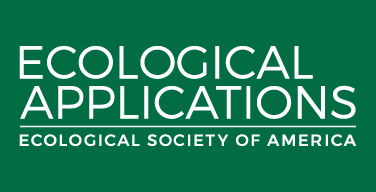
Aquatic fungi – forgotten conservation targets
A new paper addresses the problem of a lack of attention towards aquatic fungi as potential conservation targets.

A new paper addresses the problem of a lack of attention towards aquatic fungi as potential conservation targets.

A review of 13 years of agricultural data collected by the Spanish government shows that pest populations are more stable and easier to predict and control in diversified landscapes.

A new study by more than 120 research institutions gathers largest-ever photo database of Amazon wildlife, with stunning images of jaguar, puma, giant anteaters, tapirs, bears and hundreds of other species.

New research led by an Oregon State University scientist provides the first long-term study of methods to control the spread of wildfire in the sagebrush steppe ecosystem that dominates parts of the western United States.

A new study shows that popular restoration efforts would need to be conducted at much greater spatial and temporal scales than currently pursued in order to have long-term benefits.

New research from the University of California, Davis shows how biological invasions interact with a changing climate in unpredictable ways.

New research from UC Santa Barbara scientists explores what happens when traits jump between branches of the tree of life.

The ʻōhiʻa tree, which is endemic to Hawaiʻi, may be easier to repopulate than previously thought, according to new research from the University of Hawaiʻi at Mānoa.

Priyanga Amarasekare, a professor of ecology and evolutionary biology at UCLA, has won ESA’s 2022 Robert H. MacArthur Award.

Jacquelyn Gill and Kit Hamley are co-authors on a research paper that was recently selected as the winner of ESA’s W.S. Cooper Award for a study of seabirds in the Falkland Islands.

Hanqin Tian, the Solon and Martha Dixon Endowed Professor in Auburn University’s College of Forestry and Wildlife Sciences, has been elected as a fellow of ESA.

Dulcinea Groff, a University of Wyoming postdoctoral research associate, has been named the recipient of ESA’s William Skinner Cooper Award.

ESA recently selected a research paper whose lead author is Myla Aronson, an assistant professor at Rutgers University, as the winner of its Sustainability Science Award.

Research led by University of Vermont scientists shows that forest management in Europe is out of alignment with natural patterns.

Researchers at the University of Wisconsin–Madison have developed high-resolution maps that can help conservation managers focus their efforts where they are most likely to help birds.

Two University of Washington professors have been honored by the Ecological Society of America for their knowledge and contributions to the field of ecology.

Ohio Wesleyan University professor Laurel J. Anderson is the 2022 winner of the Ecological Society of America’s Eugene P. Odum Award for Excellence in Ecology Education.

Stan Wullschleger, associate laboratory director for biological and environmental systems science at the Department of Energy’s Oak Ridge National Laboratory, is the recipient of ESA’s 2022 Commitment to Human Diversity in Ecology Award.

Congratulations to alumnus Jianguo “Jack” Liu, PhD ’92, who has received the 2022 Eminent Ecologist award from the Ecological Society of America.

Analysis of data from 140 countries suggests many rich countries could use less energy per capita without compromising health, happiness or prosperity. Countries struggling with energy poverty may be able to maximize well-being with less energy than previously thought.
Notifications